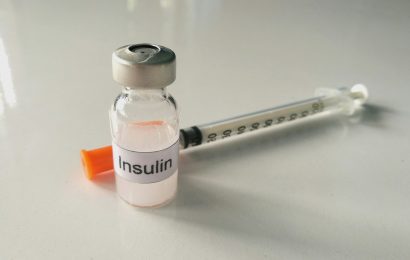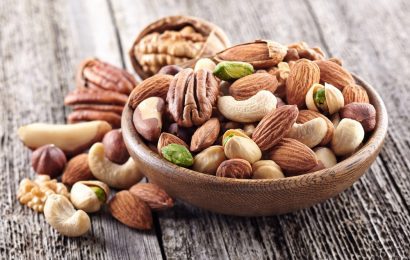I like it when studies confirm what I’ve been saying for years, especially when most people didn’t believe me. For years, I’ve been reporting that stress is a major cause of overweight and Type 2 diabetes. And people have scoffed.
“It’s just how much you eat and how much you burn off with exercise,” they’ll say. “Stress might lead you to eat more, but that’s the only connection.” Even Richard Bernstein, the low-carb guru and author of Dr. Bernstein’s Diabetes Solution doesn’t get this, although he is right about so many diabetes-related things. He says stress doesn’t raise people’s blood sugar.
Well, maybe not immediately. But stress does increase insulin resistance and promote abdominal fat. So in the long run, stress will tend to make you fat, and raise your blood glucose, your cholesterol and your blood pressure significantly.
This has been shown for years — for example in this 1999 English study of 10,000 civil servants. Those with high work stress had twice the rates of obesity, heart disease, diabetes, and some neurological problems as those with low stress. But what is stress exactly, and what can we do about its effects?
Stress and Inflammation
Stress is anything that causes our bodies to feel threatened. Stresses can be emotional, economic, or physical. Physical stress can include things like cold and fatigue, and a recent study (reported on in Diabetes Flashpoints) showed that breathing polluted air caused insulin resistance in mice.
Now, how could breathing dirty air make a mouse (or a person) fat or diabetic? Experts like Janice Kiecolt-Glaser, PhD, say the link is that stress causes inflammation. When under stress, our bodies release chemicals called “pro-inflammatory cytokines,” which are good for fighting short-term infections and repairing injury. But if your stress levels are chronically high, these cytokines can cause insulin resistance and many other health problems, including cancer. This is true whether the stress is physical or mental.
Stress is also the way we respond to life’s dangers. If we react to pressure with shallow breathing, muscle tension, constant worrying, and excessive anger, the physical effects will be worse. Practices of breathing, relaxation, prayer, and exercise can help us minimize the effects of stress.
Scientists increasingly believe that inflammation is a major reason why people with diabetes get heart, kidney, or eye disease.
So what’s the good news?
If stress can make you sick, can reducing stress make you better? Studies suggest that it can. Dean Ornish, MD, showed that coronary artery (heart) disease can be reversed with a program including a low-fat, vegetarian diet; stress management; moderate exercise; and psychosocial support. But you need the whole program, not just the diet, especially since the meditation and yoga teach you how to cope with stress.
A more recent study in New Zealand found that “Women who meditated and did yoga lost an average of five and a half pounds (2.5kg)” over two years and kept it off, while those who focused purely on exercise and nutrition did not. “The ‘relaxed’ women were also generally happier and healthier at the end of the study.”
Study co-author Caroline Horwath, PhD, said, “The positive results are exciting, given the limited long-term success of traditional dieting approaches.”
Is there anything I can take for this?
If inflammation (caused by stress or any other reason) helps cause diabetes and complications, taking anti-inflammatory medicines might help. Green tea is a potent natural anti-inflammatory. A recent article in the LA Times reports on several studies showing that green tea reduces abdominal fat, giving a “boost to exercise-induced weight loss.” The researchers, based in the US and Japan, believe that green tea may “speed the rate at which fat is broken down in the body. It may also help the body’s sensitivity to insulin, lowering the risk of diabetes.”
If green tea reduces inflammation, might anti-inflammatory drugs do even better at preventing diabetes and its complications? Some researchers strongly hope so. They are studying an old drug, salsalate, a cousin of aspirin, to see. Pilot studies show that salsalate (discovered in the 1800’s) does lower blood glucose.
In a recent Wall Street Journal article, Myrlene Staten of the National Institutes of Health was quoted as saying that salsalate “is a cheap, generic drug that has the potential to add to our tools for improving glucose control in diabetics.”
Bottom Line
Of course, if you’ve read this far, you know that reducing inflammation will help you above and beyond its effects on blood sugar control. And reducing and learning to deal with stress is a major way of reducing inflammation. And having a sense of control reduces stress, so taking control by trying some of these things (green tea, yoga, relaxation, anti-inflammatories), hopefully along with exercise, is a win-win-win proposition.
What do you think? Does any of this make sense to you? What can you see doing about it? I’d appreciate hearing from you.




